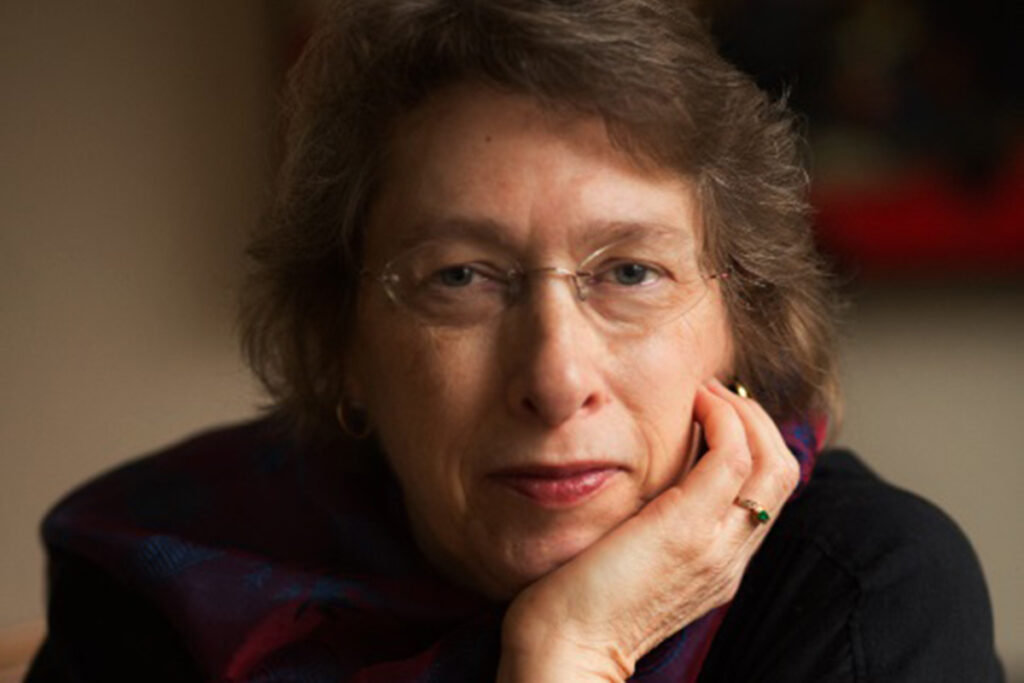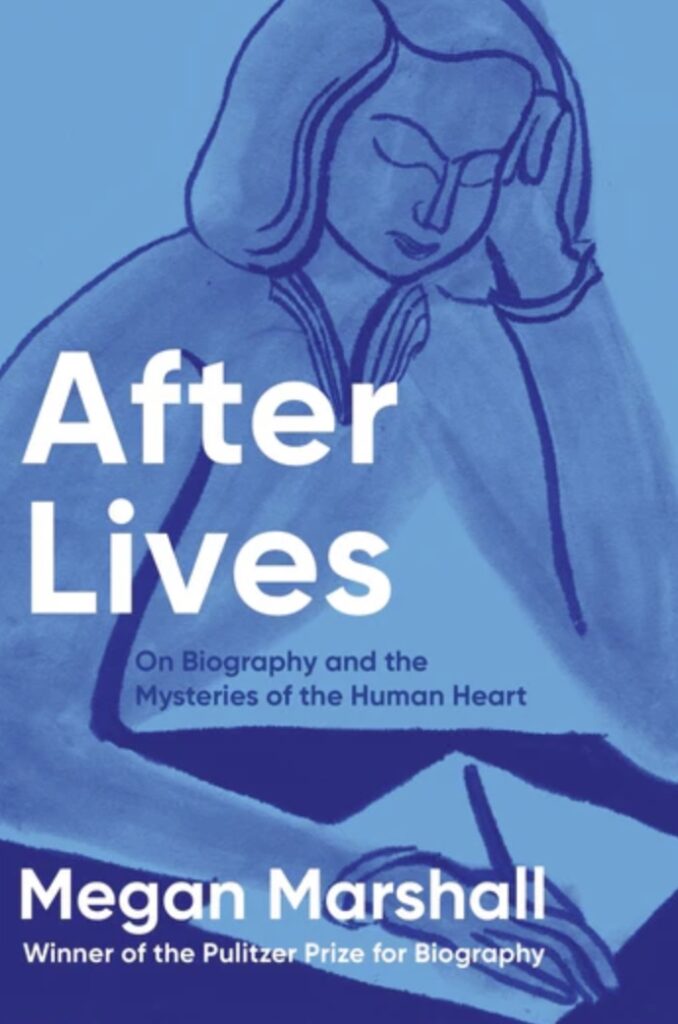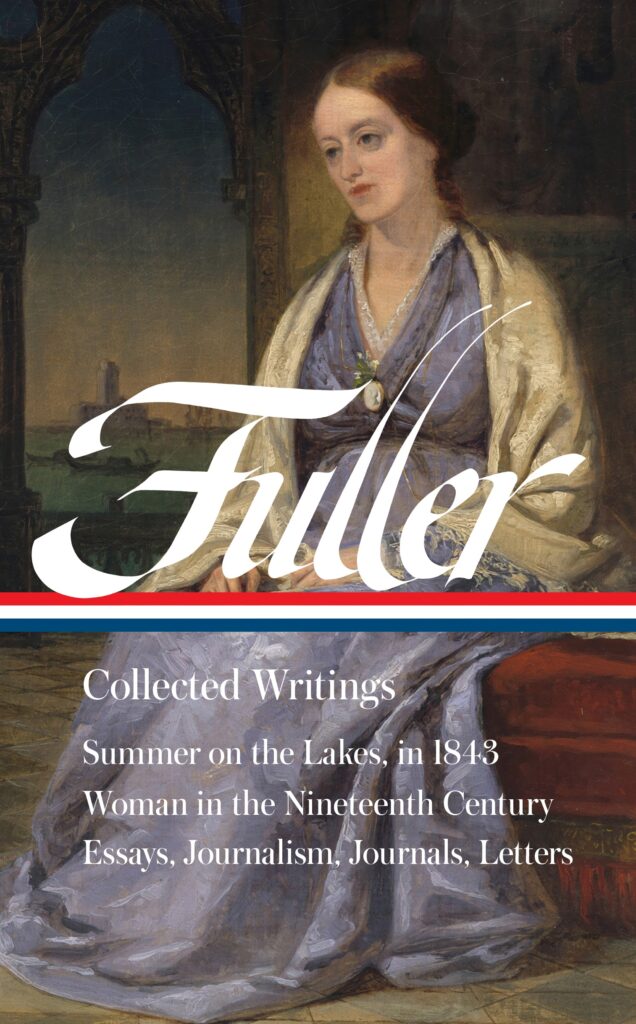Megan Marshall on Writing Lives and the Balancing Act of Motherhood

Megan Marshall has had a busy semester.
The Pulitzer Prize winning biographer and Charles Wesley Emerson Professor published two new books in February — After Lives: On Biography and the Mysteries of the Human Heart, a collection of essays examining her life and its relationship to the lives of others; and Margaret Fuller: Collected Writings, a collection she edited with Noelle A. Baker and Brigitte Bailey.
In addition to numerous readings to support their release (including one on April 1 at Newtonville Books with Emerson alum Nicole Graev Lipson, MFA ’22), Marshall has made her artificial intelligence debut with Rebind.ai, a company that digitally publishes classic works of literature enhanced with commentary and context from scholars and authors, the likes of Margaret Atwood, Roxane Gay, Marlon James, and Salman Rushdie. Marshall is your AI guide to Nathaniel Hawthorne’s The Scarlet Letter.
If all that weren’t enough, Marshall is the latest guest on The Mothers, a podcast on motherhood, professional life, and “having it all,” co-hosted by her own daughter, Sara Sedgwick Brown.
A New Way to Write Lives
Marshall said like many people, she’s always found it easier to write about others, but gradually, “this inner self crept out,” first in her hybrid biography Elizabeth Bishop: A Miracle for Breakfast, (Marshall knew the poet as a student at Harvard University), and now in After Lives.
“I have to say, I think a lot of it, my courage to [write memoir] and my interest in doing that came from teaching at Emerson,” Marshall said.

Many, if not most of her students are interested in writing about their own lives and experiences, and her undergraduates in particular, are very keen on the personal essay.
“So I think my writing of biography became more genre-bending through the influence of what I was teaching and what the students wanted to learn, and helping them articulate their own experiences,” she said.
The title of Marshall’s essay collection, After Lives, is a triple reference: to this new literary direction after penning three large biographies, to the people from her own life who are resurrected through her words, and to the way her biographical subjects linger in her psyche long after the books have gone to print.
“Some of the essays are about questions that haunted me, or issues that came up since I wrote those books,” she said.
Among the essays in After Lives is a meditation on a history of left-handedness among generations of women in her family, and how that trait is linked in her mind with womanhood, and all the challenges that accompany it. In another piece, she writes about a high school classmate, Jonathan Jackson, who was killed attempting to free his brother from prison in a hostage-taking scheme that landed Angela Davis on the FBI’s Most Wanted List. In all the essays, Marshall said, she uses her own memories and family history to explore how she came to be a writer of other peoples’ lives.
Whether she’s mining her own memory or digging through archives to tell the story of a long-gone historical figure, Marshall said there are some fundamentals that don’t change.
“I’m always trying to get it right, and that’s the fun of it, that’s what makes it real,” she said. “It’s always very thrilling to have a recollection that you can then verify, either by chance or because you call people who were there too, or maybe you realize you have to correct some things. It’s a similar thrill [to biography],” she said.

Mother to Mother
Marshall’s conversation with Brown on The Mothers also skirted the line between the personal and biographical.
Brown described their chat as “incredibly cathartic.”
“To hear my own mother describe how and why she parented the way she did, what she sacrificed, how hard she tried, how much she was grappling with the very same questions I’m grappling with — how to build a meaningful career and a meaningful connection to your children and broader life — was a really powerful full-circle moment for me,” she said.
But the two also talked about how many frustrations of motherhood have carried down through the ages, and how 19th-century women such as Sophia Peabody (whom Marshall wrote about in The Peabody Sisters) and women throughout the 20th century such as Marshall’s mother and grandmother, had to decide what they wanted out of life and negotiate the necessary tradeoffs, she said.
“I sort of try to think of it in in terms of feeling effective.” Marshall said. “I’m a maker of books and writing, so I know I would not feel happy if I weren’t doing something where I could see a result, a physical result in the words…
“But also, there’s the great reward of motherhood,” Marshall continued. “As I write about in [After Lives], … for many years that motherhood was predominant and my book was kind of just puttering along to the extent that it could. And I still also found some satisfaction in learning how to drive a car all over the Northeast to take her to soccer practice, so you learn so much from your kids.”
Categories